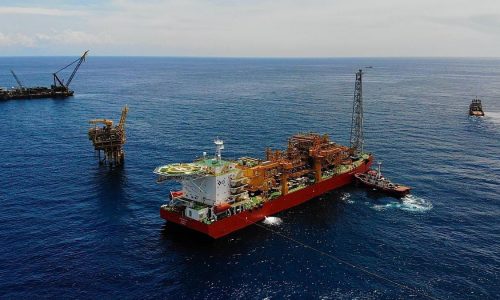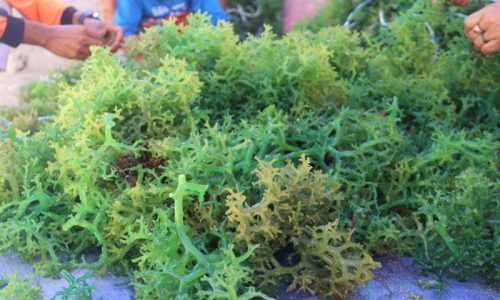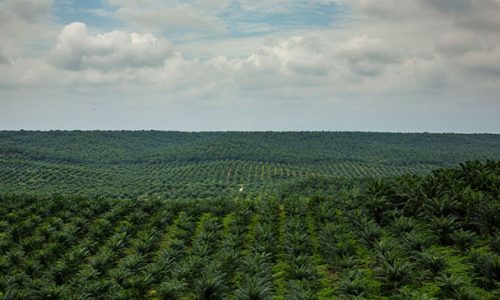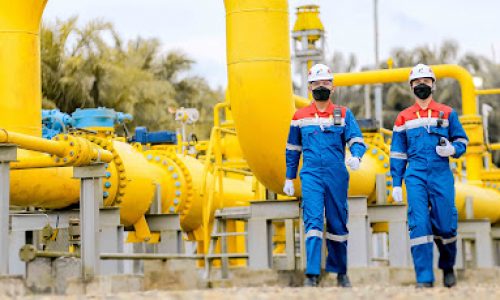The government has decided to restructure state-owned plantation company PT Perkebunan Nusantara (PTPN) III into three subholdings and would launch an IPO for one of them, which is the oil palm plantation PalmCo.
Deputy Minister for State-Owned Enterprises Pahala Mansury said that the establishment of PalmCo should be completed by the end of 2022 and the IPO will take place in the third quarter of 2023.
“We have finalized the government regulation and other things to continue the establishment and the integration of PTPN III’s subsidiaries of palm oil plantations to become PalmCo,” he said on December 10, 2022.
Big plan for PalmCo
Mansury explained that the PTPN III was divided into 3 subholdings; Sugar.Co that has been established and started to operate; SupportingCo that produces cacao, coffee and tea; and PalmCo. PalmCo will become the largest palm oil company and a major player in the world’s palm oil industry, with a production target of 1.8 million tons per year by 2026.
“We hope PalmCo will become the biggest palm oil plantation in the world with a total land of 640 thousands hectares across Indonesia,” he said.
Read also: SOEs’ subsidiaries continued to be IPOed, privatized amidst controversy
Mansury said the IPO was to optimize the value generated by PalmCo through the integration of its subsidiaries. In the future, the palm oil productivity can be more integrated and encourage the formation of a market cap in the range of IDR 40 trillion to IDR 60 trillion.
“We hope the IPO proceeds will increase the company’s equity by IDR 6 trillion to IDR 8 trillion, which we hope will reduce debts and improve the capital structure of the group and PalmCo and encourage future investment,” he said.
“Then by various initiatives, including producing POME [Palm Oil Mill Effluent] and FAME [fatty acid methyl ester], we hoped that in the future PalmCo will have a development strategy to increase its ESG [Environmental, Social, and Governance] beside increasing food security,” he added.
Initiatives for investments
Mansury explained there were 3 main initiatives related to PalmCo investment. First, by increasing the CPO (crude palm oil) production capacity into 3.3 million tons per year. Therefore, the company will also increase cooking oil production capacity from the current 460,000 tons per year to around 1.8 million tons per year.
Second, the IPO will helps banking sectors and palm oil fund agency to rejuvenate people’s oil palm plantation. PalmCo has identified 120,000 oil palm farmers and families who can join in the rejuvenation program. “It is time for them to rejuvenate the total land of between 60 and 70 thousands hectares,” Mansury said.
Third, the acceleration for renewable energy development. The government has carried out efforts to increase energy security by developing biofuel and increase the availability of POME and FAME from two feedstocks for producing B20 into B40 and B50.
“Beside biodiesel, we hope that biogas can be another initiative to develop renewable energy,” Mansury added.
Challenges
Toto Pranoto, an observer of state-owned enterprises of the University of Indonesia (UI), said that PalmCo would only control around 10% of the national oil palm plantation. “PalmCo is not the biggest player,” he said.
The need of PalmCo to go public is related to the replanting plants and the development of palm oil downstream industry. “They need good performance in order to be attractive like Salim, Sinar Mas or Wilmar groups,” Pranoto said, referring to major oil palm plantations.
Read also: 10 largest oil palm plantations in Indonesia
Andre Rosiade, a lawmaker with the House of Representatives’ Commission VI overseeing industry and investment, said on December 7, 2022, that the IPO must be able to improve and develop PTPN III.
He highlighted the IPO plan should encourage investment to increase production, to avoid cooking oil shortage that had happened in early 2022.
“How can this IPO really develop PalmCo? We can’t have [cooking oil scarcity] incidents happened again. When the state loses against the oligarchy, our SOEs are unable to support and help the country, in the end they lose,” the Gerindra Party politician said.









